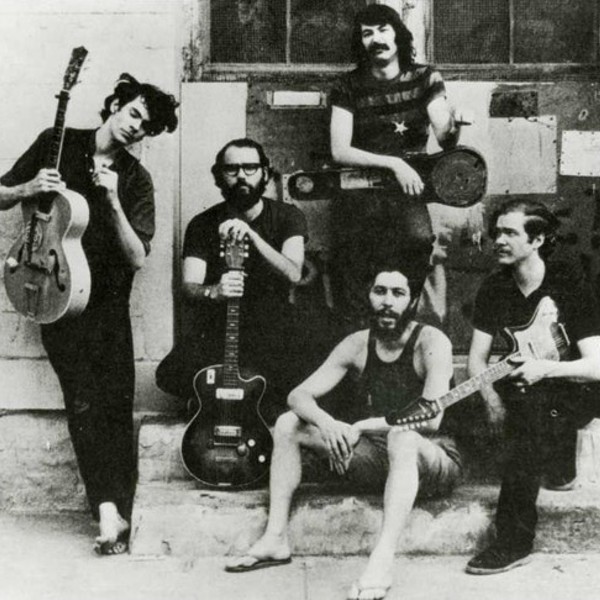Consider this a palate cleanser. But first, I need to dislodge an inedible bit of gristle stuck behind my missing molar. After three straight months of banging on about the idiocy, incompetence, and seditious machinations of the former president and his clown car of enablers and lickspittles in this column (maybe I'm not actually over this), it feels like the orange fog is beginning to lift, and the contours of the country I remember are coming into view. Since Biden's inauguration and Trump's deplatforming from social media, it's gotten very quiet all of a sudden. (What is the sound of one Trump not tweeting?)
Preet Bharara, prosecutor-turned-podcaster, spoke about this recently with former Bush administration official and conservative heretic David Frum on an episode of "Stay Tuned with Preet." Both men analogized the absence of Trump similarly: Frum suggested it was like living next door to a family with a dog that barks constantly from 5am to midnight—and then one day the family moves away. Bharara likened Trump's omnipresence and sudden disappearance to living next to a neighbor's noisy and disruptive construction site for years, and then—presto!—the construction is finally finished. (Destruction site would be more apropos in Trump's case, methinks.) Worth noting: both of these metaphors involve the invasion of personal space/home and debilitating sonic violence (like what's used by our government to torture people). Trump is the barking dog who won't shut up and the most inconsiderate neighbor who doesn't give a flying fig about you.
In the midst of the podcast, I realized that I didn't have to cede head space to the former president anymore. While Trump's shadow still darkened our political conversation and the cynical political calculations of Republicans in Congress—perhaps I could exile him from the front of my mind and not spend all my in-between moments doomscrolling.
I turned off the podcast and took my AirPods out—simple as that.
I was at the park, walking the dogs, so I took a gulp of cold, fresh air. Kids were sledding, screaming in delight at the terror of hurtling ever-faster down the hill of hard-packed snow that had taken on the near-frictionless surface of a bobsled track after multiple sledding days. These were the same conditions that almost led to the deaths of three grown men—myself being one of them—10 years ago. Hopped up on slivovitz, we convinced ourselves it was a good idea to ride James's toboggan over the DIY snow jump someone had created in the middle of the hill. We survived, but barely. Marcus's shoulder hasn't been the same since. James suffers PTSD from the incident. I walked away unscathed.
The dogs and I walked one of the stops on the park's "Advance Timber Challenge Course." There are a number of signs and pieces of equipment—parallel bars, monkey bars, balance beams—at points around the park, all made by the Miracle Equipment Recreation Company, which created municipal fitness equipment during the `70s and `80s at around the same time jogging in dolphin shorts was a craze. The sign at the station where I stood read: "Alternate Toe Touch: Bend at trunk, left hand to right toe and right hand to left toe, alternately. Novice: 20 times. Advanced: 40 times. Run." The idea was that you would run to the next station and perform the next set of exercises. In this way, we would eventually have a country that was fit—at least timber-challenge fit—in case we had to fight the Soviets hand-to-hand in the woods, I guess.
I decided to try a few toe touches. I figured I must be in the "Advanced" category. Bend, reach, retract. Bend, reach, retract. While my flexibility was hampered by the pandemic—which had given me the excuse to stop going to yoga—it was the dizziness of the up-down that got to me first. I stubbornly made it to 40 reps, but I was seeing stars. (The sign, nailed to a stout wooden post, is also good for support during moments of vertiginous imbalance.)
Sometimes it's nice to just sit in the snow at the park and take it all in. I did that. The dogs sat down as well. We all had a nice sit on the snow-covered ground. Just breathing slow, steady breaths while my double vision became single vision again. I resolved not to bend over so much and imagined a very long shoehorn and a closet full of loafers.
And then it began to snow. (It seemed like it snowed the whole month of Trump's—sadly short—second impeachment trial. But let's not focus on the man who's done more to undermine our democracy than even Facebook or Google, let's meditate on the snow.) Whenever it snows fat, wet flakes, I think of Kate DiCamillo's poem "Snow, Aldo," in which a man and his dog walking through the snow in Central Park make perfect subjects for a snow globe. This synopsis is a grave disservice to DiCamillo's magical verses. Go and read the poem in its entirety yourself.
Then I got started thinking about Wallace Stevens's "Thirteen Ways of Looking at a Blackbird," whose last stanza is concerned with snow: "It was evening all afternoon. / It was snowing / And it was going to snow." And that's the kind of gray day it has been—evening all afternoon. My reading of this stanza of Stevens's "Blackbird," however, has always been slightly, well, different than most writers on the subject. The last two lines: "it was snowing / And it was going to snow" have always struck me as an apt description of the female orgasm: once it gets good and going, it's off to the races. Just settle in and let it snow.
Stevens' poem sparked a poem of mine years ago, in which I explored the difference between female and male orgasms, using a musical metaphor. Here it is, in part:
Women are orchestral works
slow to crescendo
like Beethoven's Ninth,
meandering through three movements
first soft, then fast, then slow,
until the Ode to Joy, what Charles Rosen calls
"the symphony within the symphony."
The chorus one hundred and twenty strong
backed by the pit, pulling out all the stops,
singing: "Joy, beautiful spark of the gods!"
Men, like pop songs,
lean on formula and tend to rush
as if incapable of mystic incandescence.
Think of Cat Stevens' "Tea for the Tillerman":
perfection, but in miniature, at 61 seconds.
And there I was, in the park, snow falling, sitting with the dogs in the snow, lines of poetry and theories of orgasms running through my head. A definite upgrade to doomscrolling.

















